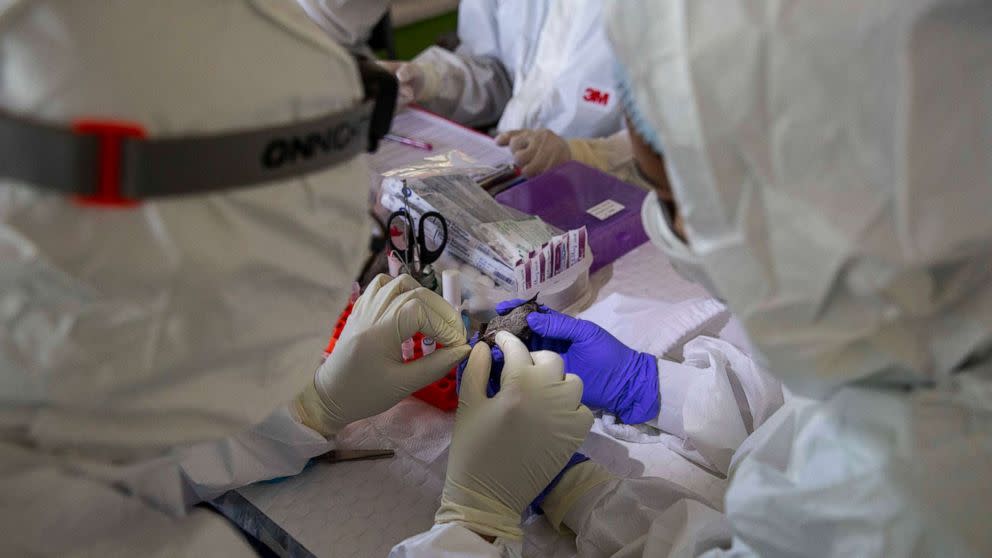You are here
STUDY: How did coronavirus get transferred from animals to humans?
Primary tabs
 How did coronavirus get transferred from animals to humans? Scientists may have an answer Nine months into the global pandemic, scientists are still piecing together the mystery of the first crossover event, in which the coronavirus moved from bats to an intermediary animal, and eventually, to humans. Surprisingly, they also found that the closest known ancestor of the SARS-CoV-2 virus has YahooNews
How did coronavirus get transferred from animals to humans? Scientists may have an answer Nine months into the global pandemic, scientists are still piecing together the mystery of the first crossover event, in which the coronavirus moved from bats to an intermediary animal, and eventually, to humans. Surprisingly, they also found that the closest known ancestor of the SARS-CoV-2 virus has YahooNews Nine months into the global pandemic, scientists are still piecing together the mystery of the first crossover event, in which the coronavirus moved from bats to an intermediary animal, and eventually, to humans.
By comparing the patterns of mutations from the new coronavirus to other known viruses, researchers have been able to create an evolutionary history of the related viruses, and found a "single lineage responsible for the COVID-19 pandemic." Surprisingly, they also found that the closest known ancestor of the SARS-CoV-2 virus has actually been living in bats for 40-70 years.
"While the new virus looks like coronaviruses that circulate naturally, it's unique in ways we didn't know about before the pandemic," said Dr. David Robertson, head of viral genomics and bioinformatics at the Institute of Infection, Immunity and Inflammation at the University of Glasgow.
Robertson and his team study how coronaviruses recombine in identifiable ways, which allows them to study the evolution of the SARS-CoV-2 virus. Scientists still aren't sure what happened in between bats and humans, but they say it's likely the virus circulated for a while in a pangolin or another intermediary animal.
Despite some lingering questions about how and when the virus made its journey from bats to humans, Robertson said his research on the virus's genetic code proves beyond a shadow of a doubt that the virus came from nature, and that by studying the virus's origin, we can better prepare for the next pandemic.
According to their recent study, which is awaiting peer review, humans are almost the perfect hosts for SARS-CoV-2, as the virus has "apparently required no significant adaptation to humans since the start of the COVID-19 pandemic." As a result, the virus naturally evolved in bats and was almost immediately ready to be spread through human contact.
Despite some lingering questions about how and when the virus made its journey from bats to humans, Robertson said his research on the virus's genetic code proves beyond a shadow of a doubt that the virus came from nature, and that by studying the virus's origin, we can better prepare for the next pandemic.
According to their recent study, which is awaiting peer review, humans are almost the perfect hosts for SARS-CoV-2, as the virus has "apparently required no significant adaptation to humans since the start of the COVID-19 pandemic." As a result, the virus naturally evolved in bats and was almost immediately ready to be spread through human contact. ...



Recent Comments